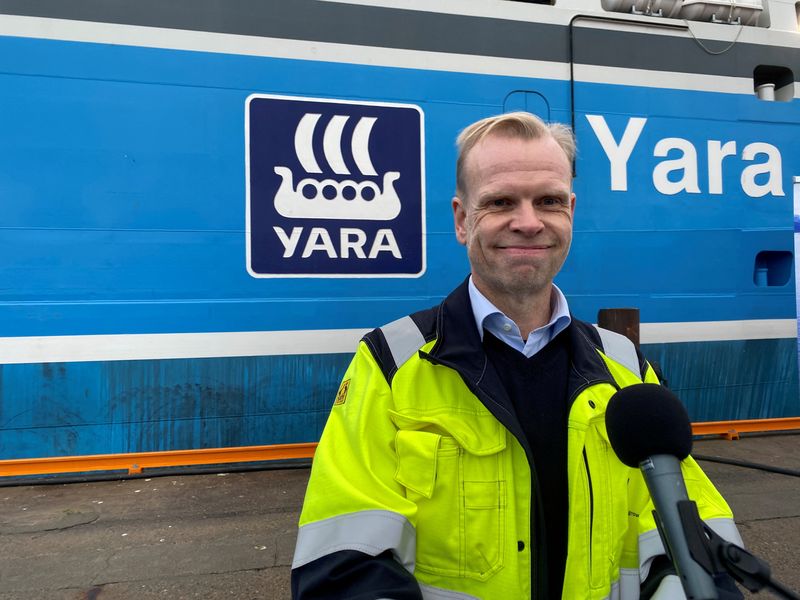By Dmitry Zhdannikov
DAVOS, Switzerland (Reuters) - Norwegian fertiliser giant Yara says donors urgently need to close the U.N.'s $10 billion food programme funding gap to avoid a catastrophe as sanctions on Russian fertilisers and Ukraine's grain export problems have created an extreme global shock.
"The world has realised that food can be a weapon and it is being currently used," Svein Tore Holsether, CEO of Yara International (OTC:YARIY), one of the world's largest suppliers of plant nutrients, told Reuters on the sidelines of the World Economic Forum in Davos.
He said the direct impact of Russian sanctions has removed at least 15% of global fertiliser supply and the indirect impact was even more severe due to disruptions of supply chains and the impact of gas price rises.
"We need to work on an emergency response for the most vulnerable. For that we urgently need to unlock funds of the world food programme (WFP), which has a $10 billion funding gap," he said.
David Beasley, the executive director of the United Nations World Food Programme, said this month even before the war in Ukraine some 276 million people were hungry globally.
WFP is believed to face a $10 billion fund shortage as food prices, fuel and shipping costs are skyrocketing while donors such as oil-rich Gulf countries are not contributing agreed funds.
Some 25 million tonnes of corn and grains are stuck in Black Sea ports because of the war in the Ukraine and Russian grains and fertilisers exports are also disrupted by sanctions.
"Currently, we have an extreme combination of events when food supplies are going down, fertilisers supplies are doing down, gas supplies are going down and prices for gas and fertilisers are rising," said Holsether.
Global fertiliser production depends heavily on natural gas and the EU receives 40% of its gas from Russia.
In March, Yara curtailed its ammonia and urea output due to the surge in gas prices but has fully restored production since.
"We need to build a system that is less reliant on Russia and is more green including by using renewable energy for fertiliser production," said Holsether.
The UN classifies over half a million people in Ethiopia, southern Madagascar, South Sudan and Yemen in the most severe phase of acute food insecurity.
Africa generally features among the most severely hit regions. Yara has donated 18,000 tonnes of fertilisers to Ghana and agreed another 40,000 tonnes of delivery, expecting that with the donated part the average price will come down.
